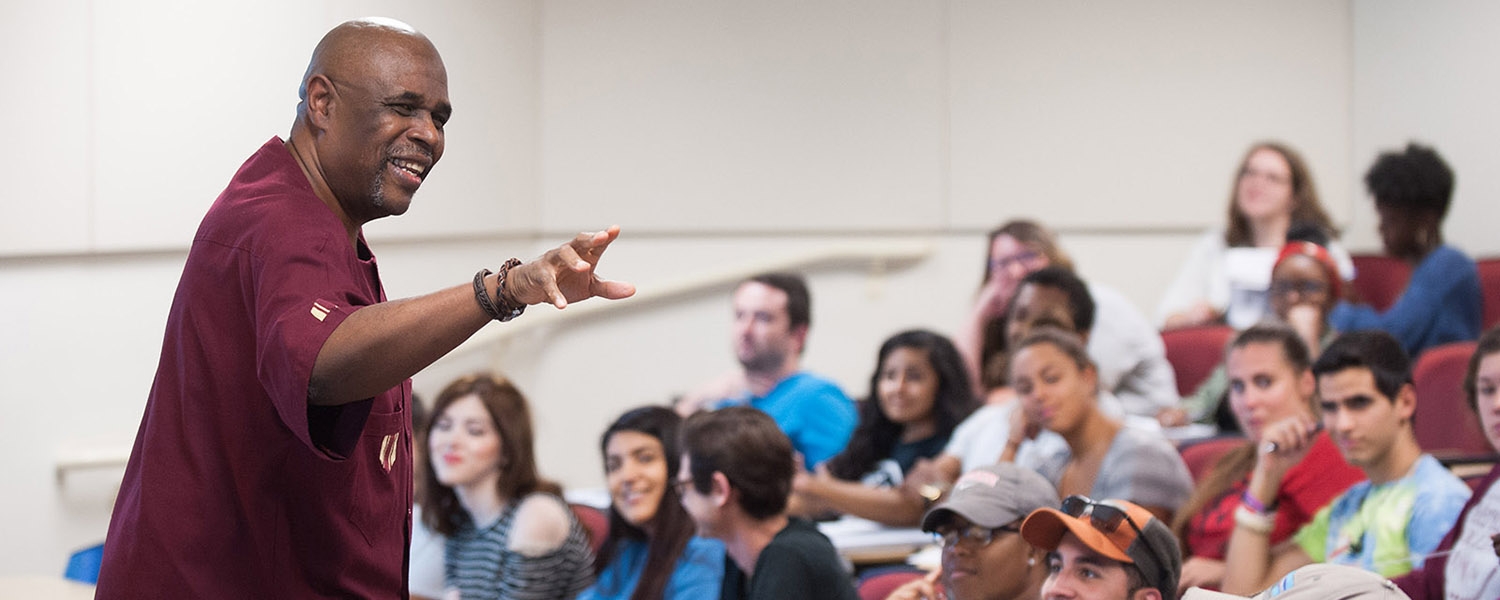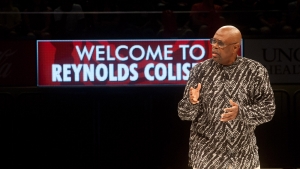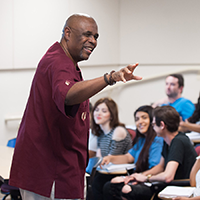
Improve Your Social Interactions
To take a class with Rupert W. Nacoste is to have your assumptions challenged and your mind broadened.
If you’re one of the lucky thousands who have flocked to the Alumni Distinguished Undergraduate Professor of Psychology’s classes in the past 31 years, you know how unforgettable his messages are, and you remember his unique and impactful style of delivery. Let’s just say no one would dream of falling asleep in Nacoste’s class.

Nacoste is a campus leader and a national voice in diversity awareness and understanding. He uses his scholarly understanding to help people learn to manage the social changes that influence their daily lives. Nacoste coined the term “neo-diversity” to capture all the ways in which our culture is diverse, whether related to race or myriad other differences such as body condition, religion, sexual orientation, ethnicity, mental health condition, political affiliation or gender identity.
“Neo-diversity has come to us because of fast and dramatic social change,” he says. “Our new problem is how to interact with each other when there are no longer barriers keeping groups separate and no strict rules of social interaction to guide us. That situation creates social uncertainty in us: how should we interact with people in our everyday lives?”
Nacoste created his popular Interpersonal Relationships and Race course in 2006 to teach how neo-diversity can challenge social interaction and relationship development. Neo-diversity has come to us because of fast and dramatic social change.
“I show students that with neo-diversity, we can get nervous in our interactions and make intergroup mistakes, sometimes with a loud (social media) bang. I am teaching students how social interactions can go wrong, and also what makes for respectful social interactions.”
Nacoste offers his students tips on how to interact well in neo-diverse America. He shares some of those tips here:
-
Never interact with a person as a representative of a group.
Whoever you are interacting with, think of the person as one individual. As can happen, if a group stereotype pops into your head, mentally acknowledge that stereotype for what it is, and continue to talk with respect to the person — the one individual — who is in front of you.
-
Take it slow. Only ask for self-disclosures as your relationship develops.
As we adjust to neo-diversity, curiosity rooted in race relations can flare up. Sometimes people feel they have to know about a person’s race or ethnicity before all else. But your burning curiosity about a person’s group membership does not give you the right to ask intrusive, disrespectful questions like, “What are you?” No human being should ever be asked that! If people want you to know, they will let you know when they are ready to reveal it. Long ago, social psychologists discovered that self-disclosures should come slowly, as if you’re peeling an onion. As Shrek says, “Ogres and onions have layers.” So do human beings.
-
Don’t trust your assumptions. Ask open-ended questions.
With a new acquaintance, you may find you need to ask a few conversation starters. Avoid stereotypical, narrow ones. I’m a tall person. Don’t ask me, “Play a lot of hoops?” Tall people, like all people, are a neo-diverse group, which means some tall people — like me — could care less about sports. Instead, ask “What keeps you busy?” or “How do you spend your days?”
-
Don’t tolerate intolerance.
One of our toughest interactions happens when someone uses anti-group language: slurs about gender, people with mental health conditions, religion, race or other stereotyped insults. What should you do? Let the person know your standards for continuing to interact with you. When you hear the language of bigotry, do not be silent. Do not argue. Just speak into the moment and object. Research shows it works if you use your inside voice to say, “I’m sorry, I would prefer not to hear that kind of gender/ethnic/racial slur/stereotype. I find that kind of talk offensive. It hurts me.”
-
Don’t attack, even if you are being attacked.
If you get into an intense or heated social interaction, keep to the high standards for behavior you have set for yourself. If you believe you are a kind, considerate person, then behave that way even as you make your case for your point of view. Make sure to hear the other’s point of view, and to really listen.
Your Gift Matters
Your gifts are essential for recruiting and retaining top scholars like Rupert Nacoste. Your support creates funding for research activities and community engagement — cornerstones of our think and do mantra.
Learn MoreCATEGORIES: Faculty, Fall 2019, Psychology




